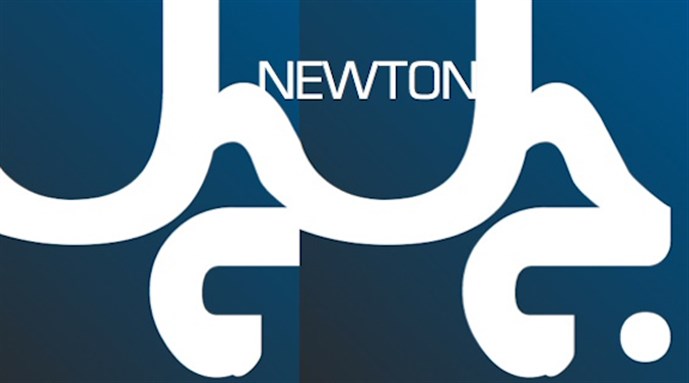[The following article was originally published on Tadween Publishing`s blog. For more information on the publishing world as it relates to pedagogy and knowledge production, follow Tadween Publishing on Facebook and Twitter.]
Social networking sites like Facebook and Twitter have played an instrumental role in transforming how educators and scholars connect with their audiences and their students. Websites like Academia.edu, a platform for sharing academic research that was launched in 2008, are attempting to push the public’s interaction with academia further and change the static system of peer review. According to Academia.edu’s website, “4,647,363 academics have signed up to Academia.edu, adding 1,628,174 papers and 876,309 research interests. Academia.edu attracts over 5 million unique visitors a month.”
In September 2013, Khosla Ventures, headed by entrepreneur Vinod Khosla, invested $11.1 million in Academia.edu to support making academic research openly accessible, for free, online. “Academia is building a new infrastructure around scientific research that promises to reshape the way science is done, making it transparent, open, and collaborative, so that we can accelerate the pace of scientific innovation,” said Khosla. Other examples of online databases and social networks that promote open access to academic research include ResearchGate, Zotero, Google Scholar, and Mendeley. But with the new investment from Khosla Ventures academia.edu is aiming to beat out the competition.
With a network of over four and a half million researchers, which is a quarter of the world’s seventeen million academics according to Digital Journal, Academia.edu aims to provide a platform for academics and scholars to publish their research without having to become tangled in the prolonged peer review process of academic and scientific journals. The ultimate goal is to make research available for free so that anyone can discover it.
“Competition for grants and tenure is at an all time high,” explains Richard Price, founder of Academia.edu, in an interview with Bloomberg. “So when you’re applying for a grant its not enough to say ‘Hey, I’ve been published in these fancy journals,’ you also have to demonstrate impact.”
According to Price, one way in which Academia.edu can aid scholars in gauging their impact is through the Analytics Dashboard, which allows scholars to see how many people are clicking to view their research (it iss the academic version of Facebook’s “like” button). Based on how academics interact with the website and the research they publish, academics will have the ability to bolster their work’s reputation. Cale Guthrie Weissman explains for PandoDaily, “Those who participate build an academic reputation on the site based on their participation. This means that academia’s platform isn’t merely a repository for papers, it’s also a social network for academics.”
Speaking in public, Price has discussed how he hopes that Academia.edu can create new avenues for breakthroughs in scientific research by exposing the work of lesser-known scientists. However, Academia.edu is not merely relegated to science, but expands across all disciplines, from history to economics. By signing up for a free account, users can search for research by looking up certain academics or areas of interest, or they can search for universities, a category that is then broken down into disciplines containing registered academics assigned to their network.
[The following article was originally published on Tadween Publishing`s blog. For more information on the publishing world as it relates to pedagogy and knowledge production, follow Tadween Publishing on Facebook and Twitter.]
Social networking sites like Facebook and Twitter have played an instrumental role in transforming how educators and scholars connect with their audiences and their students. Websites like Academia.edu, a platform for sharing academic research that was launched in 2008, are attempting to push the public’s interaction with academia further and change the static system of peer review. According to Academia.edu’s website, “4,647,363 academics have signed up to Academia.edu, adding 1,628,174 papers and 876,309 research interests. Academia.edu attracts over 5 million unique visitors a month.”
In September 2013, Khosla Ventures, headed by entrepreneur Vinod Khosla, invested $11.1 million in Academia.edu to support making academic research openly accessible, for free, online. “Academia is building a new infrastructure around scientific research that promises to reshape the way science is done, making it transparent, open, and collaborative, so that we can accelerate the pace of scientific innovation,” said Khosla. Other examples of online databases and social networks that promote open access to academic research include ResearchGate, Zotero, Google Scholar, and Mendeley. But with the new investment from Khosla Ventures academia.edu is aiming to beat out the competition.
With a network of over four and a half million researchers, which is a quarter of the world’s seventeen million academics according to Digital Journal, Academia.edu aims to provide a platform for academics and scholars to publish their research without having to become tangled in the prolonged peer review process of academic and scientific journals. The ultimate goal is to make research available for free so that anyone can discover it.
“Competition for grants and tenure is at an all time high,” explains Richard Price, founder of Academia.edu, in an interview with Bloomberg. “So when you’re applying for a grant its not enough to say ‘Hey, I’ve been published in these fancy journals,’ you also have to demonstrate impact.”
According to Price, one way in which Academia.edu can aid scholars in gauging their impact is through the Analytics Dashboard, which allows scholars to see how many people are clicking to view their research (it iss the academic version of Facebook’s “like” button). Based on how academics interact with the website and the research they publish, academics will have the ability to bolster their work’s reputation. Cale Guthrie Weissman explains for PandoDaily, “Those who participate build an academic reputation on the site based on their participation. This means that academia’s platform isn’t merely a repository for papers, it’s also a social network for academics.”
Speaking in public, Price has discussed how he hopes that Academia.edu can create new avenues for breakthroughs in scientific research by exposing the work of lesser-known scientists. However, Academia.edu is not merely relegated to science, but expands across all disciplines, from history to economics. By signing up for a free account, users can search for research by looking up certain academics or areas of interest, or they can search for universities, a category that is then broken down into disciplines containing registered academics assigned to their network.

![Now Available at Tadween Publishing in Partnership with Tadamun: "Planning [in] Justice العدالة في التخطيط"](https://kms.jadaliyya.com/Images/135x94xo/covers210326041535580~.png)














